“Whether you come back by page or by screen, Hogwarts will always be there to welcome you home.” This is what JK Rowling had said in 2011, when she launched Pottermore, the extensive and interactive website for all things Harry Potter. More than five years on, she has stayed true to the words and how. Today there are several such mediums available – books, screen, stage, website, theme park – through which you can return to Hogwarts. Or even Ilvermony, the American equivalent of Hogwarts. Or to any other part of the fascinating fantasy world, Rowling created when the first Harry Potter book came out back in 1997. And now, in 2016, with the release of Harry Potter and the Cursed Child, a two-part West End stage play based on an original new story by JK Rowling, Jack Thorne and John Tiffany, the rehearsal script of which is being released as a separate book termed as the eight installment of the series, the legacy takes another, unusual step. Whether this new story enhances or tarnishes it, fact remains that the Harry Potter legacy has not only lasted these past two decades, but also grown in ways previously unknown and unimagined. [caption id=“attachment_2925340” align=“alignleft” width=“380”] 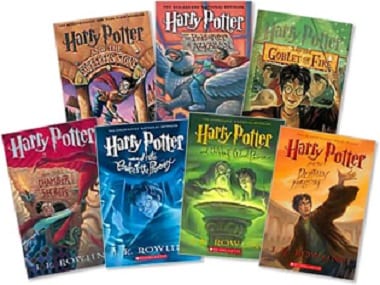 From the time the first Harry Potter book was published in 1997, ‘Pottermania’ hasn’t dimmed one whit[/caption] It has been nearly 20 years since the first book, Harry Potter and The Philosopher’s Stone was released. A children’s book that was rejected by a dozen publishers, has now made JK Rowling one of the most successful authors in literature and wealthier than Queen Elizabeth II. It has been nine years since the last full-fledged novel, Harry Potter and Deathly Hallows, was released, and yet the fan following around the books is as manic as ever. Take a cursory look at popular internet forums – Tumblr, Pinterest, Reddit, Quora or even Twitter, Instagram and Facebook, to understand the diverse, mass following the series enjoys. What is it that keeps the magic of Potter alive? Has the universe evolved, from books to beyond? How has Rowling, quite cleverly, kept up interest in her characters? These are the questions that everyone answers in the affirmative. But there is much more to the lasting legacy than just magic. _Read Firstpost's review of Harry Potter and the Cursed Child: JK Rowling casts a neat time-travel spell with this eighth book_ How often has a popular author, who has wrapped up a series, stretched their creation to something that lets you experience and inhabit the fictional world firsthand? Through an interactive web portal that takes you on a journey through your screen, or through a massive theme park and studio tours (Credit to Warner Bros here) that recreates the universe, or through simple tie-in books that were supposed to be textbooks, Rowling has ensured that the magic has moved beyond the story. I remember being thrilled when I first discovered Pottermore. I logged on to the beta version, built my profile, got my wand, found my House, participated in school activities (even de-gnomed a garden.) And after playing hundreds of ‘What Hogwarts House do you belong in?’ quizzes online, here was a quiz as close as we could get to the actual Sorting Hat, created by the very person who conceptualised it! Pottermore established that the magic wasn’t in the Sorting ceremony, but in the ability to experience it online. Rowling had not only taken her creation beyond the books, she had it to a whole new world – the world wide web. [caption id=“attachment_2925344” align=“alignnone” width=“825”] 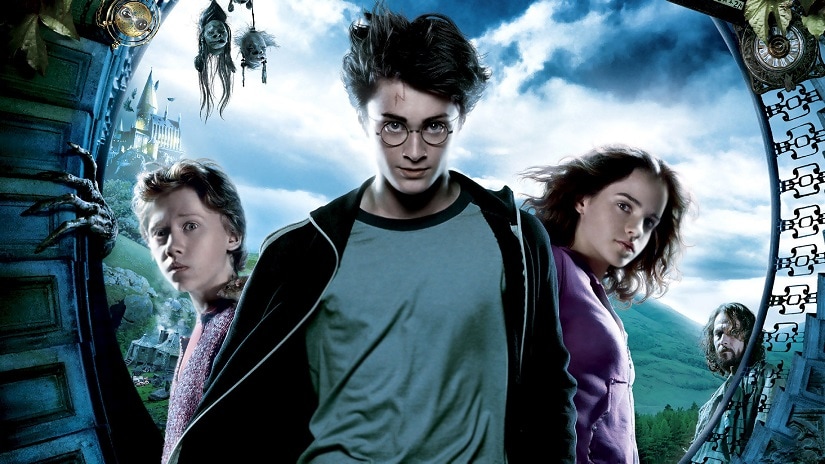 Rupert Grint, Daniel Radcliffe and Emma Watson as Ron, Harry and Hermione in ‘Harry Potter and the Prisoner of Azkaban’[/caption] The icing on the pumpkin pasty was the influx of original material straight from the author’s quill. The more than 18,000 words of content, little tidbits from the past and present of Potter, kept the story alive even without a new book. Be it the backstory of beloved characters Minerva McGonagall and Remus Lupin, or ‘news reports’ about the ongoing Quidditch World Cup or the saucy articles by ‘Rita Skeeter’ – there was always enough, new, fresh content to keep the readers’ interest piqued. For a fandom devoid of a new book for years, these little morsels kept them satiated. “You get invested in the story and characters beyond other books, you want to know what happens to Luna when she grows up, or Neville, or Dean, or how Tonks and Lupin fell in love, or who Sirius dated in school, or more about Shacklebolt. The books become more than books for anyone who reads them, and over the course of seven books, these characters become like family. Harry Potter is a comfort story,” says Jayanti Jha, who is the co-founder of BYOB Bombay, a book club that meets every fortnight to discuss their latest reads. _On Firstpost: Beloved Witch – Ipsita Roy Chakraverti on being India's most famous Wiccan, and witchcraft_ Then there is the minor matter of tie-in books, which in itself is nothing new. Several franchise book series have a variety of supplementary books – be it The Silmarillion for The Lord of the Rings, or The World of Ice and Fire for Game of Thrones or even the Star Wars novelisations. But what set JK Rowling apart is the fact that she wrote three more books from the Potterverse, as the people from the Potterverse. The Tales of Beedle the Bard, Fantastic Beasts and Where to Find Them and Quidditch Through The Ages, are all written from the wizard world point of view, and were initially written for charity purposes. These are uniquely packaged with tiny, nostalgic touches – Fantastic Beasts and Where to Find Them, a textbook for Hogwarts students, has handwritten notes from Harry Ron and Hermione scrawled all over, Quidditch Through The Ages has a Hogwarts library card inside. [caption id=“attachment_2925346” align=“alignnone” width=“825”] 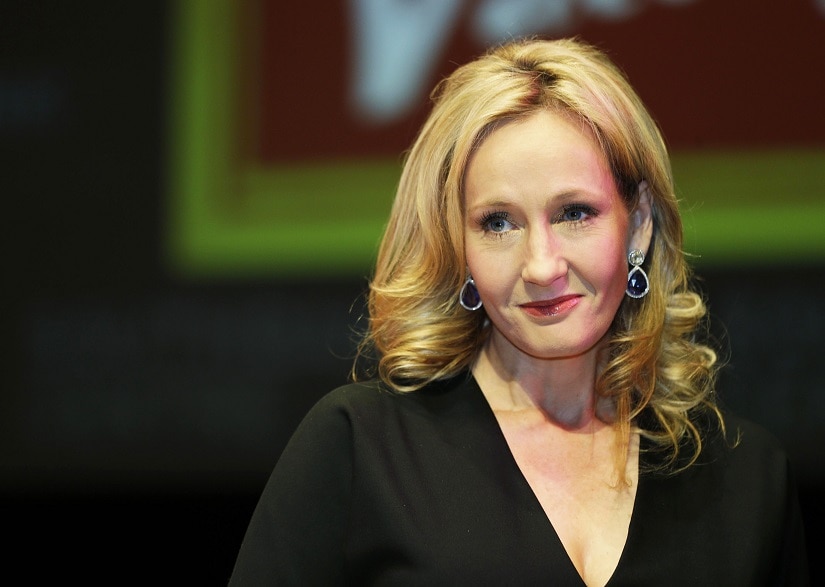 JK Rowling was struggling single mum, surviving on welfare and her job as a teacher’s temp, when she started to work on the Potter stories. The franchise has made her ‘richer than the Queen’[/caption] Of course, even this simple textbook went one step further when the Warner Bros studio decided to make it into an original film, with the screenplay being written by Rowling. Fantastic Beasts and where to Find Them will be a two part film series starring Oscar winner Eddie Redmayne as the titular book’s author Newt Scamander and will document the adventure on which he found the fantastic beasts that lead him to write the book, almost seventy years before Harry Potter went on his adventure. While many view this as a Hollywood cash grab, it is yet more material from Rowling’s magic world, and fans are unsurprisingly excited about it. The magic has seeped in Muggle life as well. Quidditch has become a real sport, and there is even a Quidditch World Cup held in New York. For fans who want to experience the world of Potter, The Wizarding World of Harry Potter is the closes one can get. And then there is literary tourism to the books’ real life locations – there is an actual Platform 9 and ¾ set up at King’s Cross station in London. But it is not only these vast and varied creations that keeps the story of a young wizard alive and kicking. There are the more intangible aspects to the fan following or the fandom as the interweb calls it. It is no coincidence that Potter fandom is so big online – it has, after all, coincided with increasing accessibility of the internet, especially among the youth. The internet became the go to place to discuss all things Potter, things you couldn’t discuss with people around you, and the virtual community grew as the new books came out. Children who were preteens during the release became the teens with broadband connectivity who populated online forums with fan theories. I remember the frenetic online speculation about the identity of ‘RAB’, in the Half Blood Prince, which proved to correct when Deathly Hallows was released, and the sheer disbelief when Severus Snape was revealed to be the hero. _Also on Firstpost: Practical magic – Maneka Sorcar on carrying forward her father PC Sorcar Jr's legacy_ The Harry Potter fandom is quite the proverbial phoenix on the world wide web. Even when there wasn’t any new material in years, it kept itself alive through fan fictions and head canons and fan art and fan videos. And when there is any little, new information out – a Pottermore update or even a Rowling tweet revealing Sirius Black’s birthday – they collectively rise from the ashes, and, to put it mildly, go berserk. Remember the hysteria when everyone and their friend shared their unicorn hair core wand and flaunted their House pride on social media? Or how the ‘internet’ was ‘breaking’ as fans excitably discussed an all new Harry Potter film, nevermind the fact that it would be based in ancient America. Several other fantasy series such as Twilight, The Hunger Games, Divergent and so on have experienced spurts of popularity, especially during the film releases. There were inevitable comparisons drawn with Harry Potter, but what have set it apart from its peers and successors is that fact that series and its following has sustained for more than two decades now. [caption id=“attachment_2925350” align=“alignnone” width=“825”] 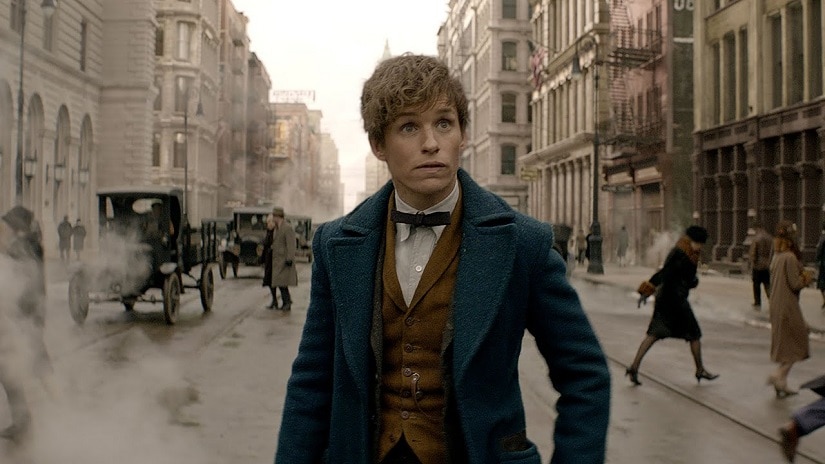 Eddie Redmayne in a still from ‘Fantastic Beasts and Where to Find Them’[/caption] A large part of this due to the story – the creation of magical world that is fundamentally different, yet just like ours. Rowling weaved a fantastic story, combining myth with fairytale as a bildungsroman about fairly flawed and ordinary characters. It has all the elements of high fantasy, combined with the timeless emotions of love, loyalty friendship and the classic theme of triumph of good over evil. It derives ideology from ancient Greek and Roman myth, is founded on the willing suspension of disbelief and features popular tropes seen across genres. At the same time, it is written in language that appeals to all ages, has characters that relatable and problems and solution that are accessible. “The thing about the Harry Potter books is that it’s not just a beautiful universe slightly off kilter from our own but it also captured universal emotions you can identify with. It has invisibility cloaks and potions and flying brooms but it also has teenage gawkiness, friendships, and the frustration of not being taken seriously by ‘adults’,” says Sanaya Fernandes, co-founder of Mumbai-based book club, The Tar{Who}Dis, who will host a Potter and magic themed book meet on 31 July. [caption id=“attachment_2925356” align=“alignnone” width=“825”] 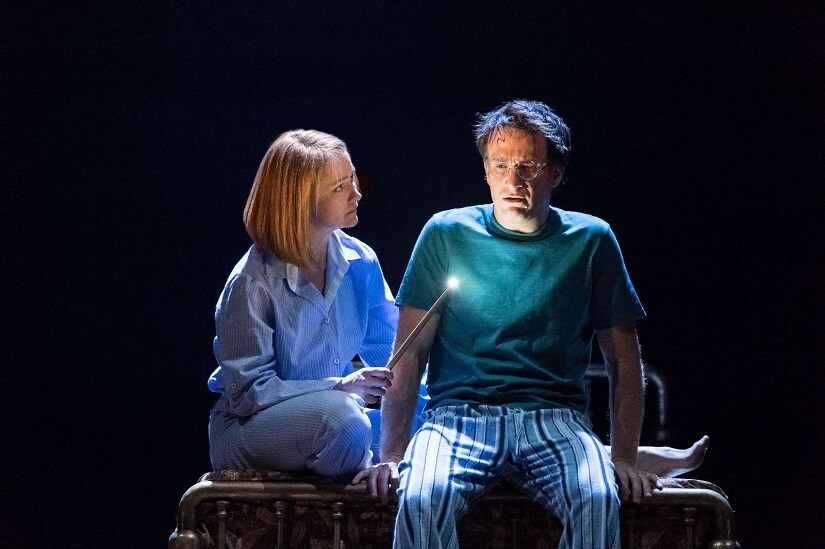 Poppy Miller as Ginny Potter, and Jamie Parker as Harry Potter in the play ‘Harry Potter and the Cursed Child’[/caption] But the best way to experience this universal appeal of Harry Potter is to see it firsthand. Go to any comic convention and you will see the massive representation of the fandom – from cosplay to merchandise. I have attended several comic cons in India, and every single one of them has had some incredible Potter-themed participants. In Mumbai, there is as event called Pottermania held annually at HR College which brings together all the city’s fans. Recently, in anticipation of the Cursed Child’s release, various bookstores and other organisations have held Potter-themed events. Trilogy by The Eternal Library, Crossword, Landmark are all hosting launch events with as much fanfare as was seen nine years back. Alohomora, a Harry Potter themed event organized by Books On Toast, was a huge success as well. “We were sold out (300 tickets) in hours, there was a lot of excitement on the event page. There were 6 years olds to 30 year olds dressed up as Harry Potter, walking around drinking Butterbeer and taking pictures, participating in the quiz," says Anuya Jakatdar, founder of Books on Toast, described by her as community for readers who take their books seriously, but not themselves, says This diversity is ultimately the essence why Harry Potter endures. The book series found and made readers in all age groups, the film series reached a different audience and the internet brought fans from all walks together to create this one, consolidated, all-encompassing fandom. In the first chapter of the first book there is a quote that says: “E_very child in our world will know his name_.” Even JK Rowling, back in 1997, couldn’t have imagined that this one, innocuous line will define her creation. Because almost every child in this world does know the name Harry Potter.
What is it that keeps the magic of Harry Potter alive? How has the story evolved and endured, from books to beyond? How has JK Rowling, quite cleverly, kept up interest in her characters?
Advertisement
End of Article


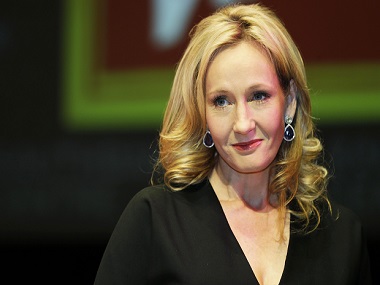)
)
)
)
)
)
)
)
)



